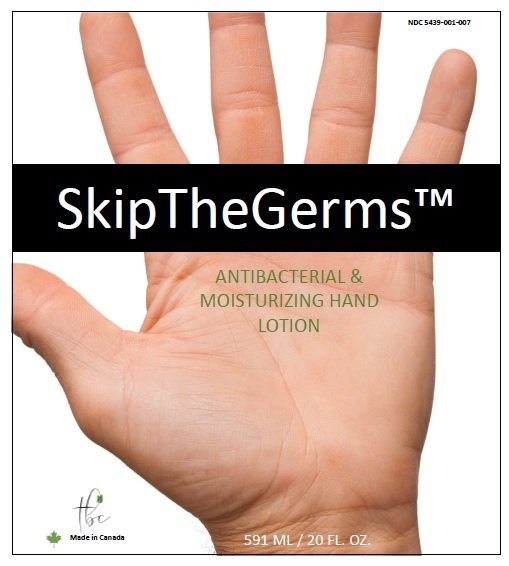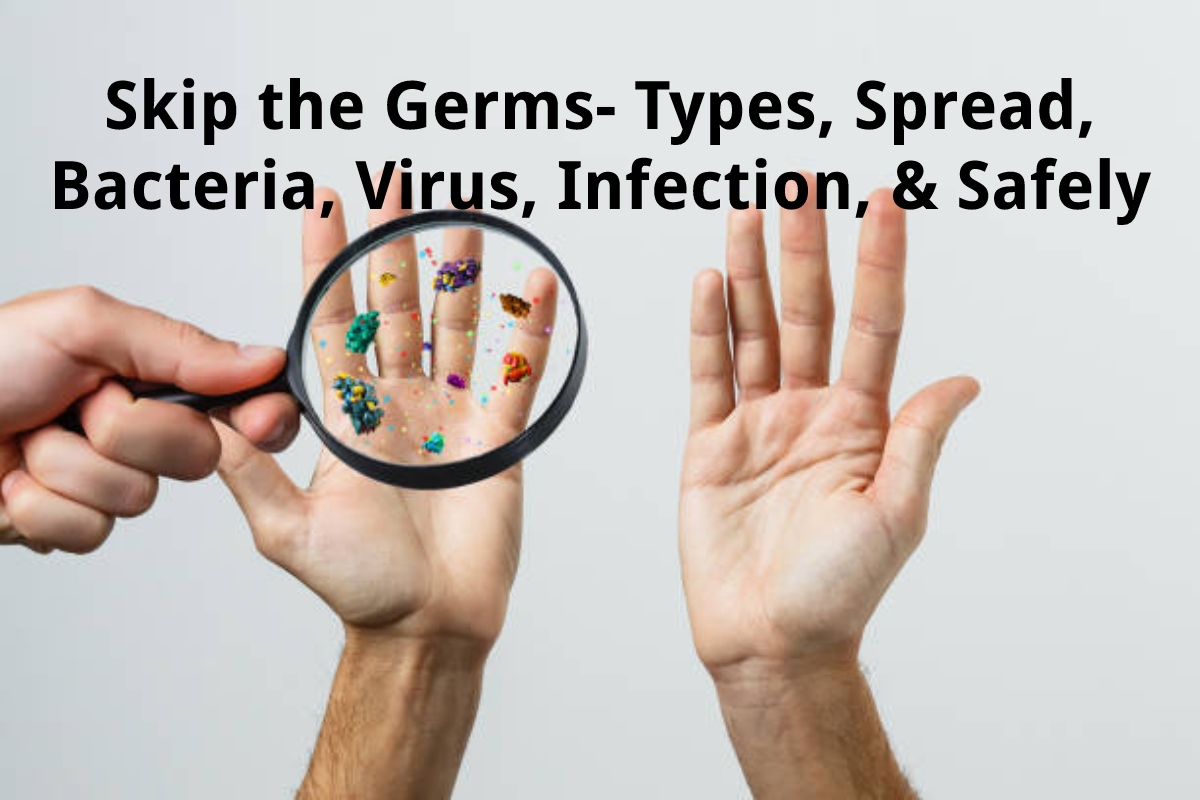Let's face it, germs are everywhere. They’re on your phone, your keyboard, and even that innocent-looking door handle you just touched. But don’t freak out just yet! With the right strategies, you can skip the germs and keep yourself protected. In this guide, we’ll dive deep into how to stay germ-free without losing your sanity.
Picture this: you're at the office, and your coworker across the room is sneezing like there’s no tomorrow. Or maybe you're traveling through a crowded airport, where every surface seems like a breeding ground for bacteria. Germs are invisible little troublemakers, but they don’t have to ruin your day.
What exactly does "skip the germs" mean? It’s about taking control of your environment, making smart choices, and adopting habits that keep you healthy. From hand hygiene to avoiding high-touch surfaces, this article will give you all the tools you need to stay ahead of those pesky germs.
Read also:Icebox Little Giants The Ultimate Guide To Understanding And Maximizing Your Potential
Why Skipping Germs Matters
Living in a world full of germs is inevitable, but falling victim to them doesn't have to be. Here’s why skipping germs should matter to you:
- Germ exposure can lead to illnesses like colds, flu, and even more serious infections.
- Staying germ-free helps boost your immune system and keeps you feeling energized.
- By avoiding germs, you protect not only yourself but also those around you, especially vulnerable populations like kids and the elderly.
Think about it—when you’re healthy, you can focus on what really matters: crushing your goals, spending quality time with loved ones, and living life to the fullest. So, let’s get started on how to keep those germs at bay.
Understanding Germs: The Basics
Before we dive into skipping germs, it’s important to understand what we’re dealing with. Germs are tiny microorganisms that can cause disease. There are four main types:
Types of Germs
Bacteria, viruses, fungi, and protozoa—each of these little buggers has its own way of wreaking havoc on your health. For example, bacteria can cause infections like strep throat, while viruses are responsible for illnesses like the flu.
But here’s the good news: not all germs are bad! Some bacteria, like those in your gut, actually help your body function properly. The key is to focus on avoiding the harmful ones.
How Germs Spread
Germs are sneaky little creatures, and they’ve got plenty of ways to spread. Here are some of the most common methods:
Read also:Lincoln Assassination The Shocking Event That Changed American History
- Touching contaminated surfaces: Ever touched a doorknob or ATM machine? Chances are, it’s teeming with germs.
- Airborne transmission: When someone sneezes or coughs, tiny droplets containing germs can float through the air and land on you.
- Direct contact: Shaking hands, hugging, or kissing can all transfer germs from one person to another.
Knowing how germs spread is the first step in learning how to avoid them. Let’s talk about some practical strategies for keeping those pesky critters at bay.
Top Tips for Skipping Germs
Now that you know what germs are and how they spread, let’s dive into some actionable tips for staying germ-free:
Wash Your Hands Like a Pro
Handwashing is one of the simplest yet most effective ways to skip the germs. But there’s a right way to do it:
- Use warm water and soap for at least 20 seconds.
- Don’t forget to scrub between your fingers, under your nails, and the backs of your hands.
- Rinse thoroughly and dry with a clean towel or paper towel.
And if soap and water aren’t available? Hand sanitizer to the rescue! Just make sure it contains at least 60% alcohol.
Avoid Touching Your Face
Your face is a germ magnet. Think about it—when you touch your eyes, nose, or mouth, you’re giving germs a direct route into your body. Try to break the habit of touching your face, especially in public places.
Sanitize Your Surroundings
Your home, office, and car can all harbor germs. Regularly sanitize high-touch surfaces like doorknobs, light switches, and your phone. And don’t forget about your workspace—keyboards, mice, and desk surfaces can all be germ hotspots.
Staying Germ-Free on the Go
Traveling can be a germ-filled adventure, but it doesn’t have to be. Here’s how to stay protected while you’re out and about:
Airport and Plane Safety
Airports and airplanes are notorious for being germ-filled zones. Here’s how to stay safe:
- Carry hand sanitizer and use it frequently.
- Wipe down your tray table and seatbelt buckle with disinfectant wipes.
- Avoid touching your face, and try not to rest your head directly on the seat without a buffer like a scarf or blanket.
And if someone near you is coughing or sneezing? Politely ask to change seats if possible, or at least turn on the air vent above you to help filter out airborne germs.
Healthy Habits for Germ Prevention
Beyond just avoiding germs, there are plenty of healthy habits you can adopt to strengthen your immune system:
Eat a Balanced Diet
Your body needs the right nutrients to fight off germs. Focus on eating plenty of fruits, vegetables, lean proteins, and whole grains. Foods rich in vitamin C, like oranges and bell peppers, are especially helpful for boosting your immune system.
Get Plenty of Sleep
Skimping on sleep can weaken your immune system, making you more vulnerable to germs. Aim for 7-9 hours of quality sleep each night.
Stay Active
Regular exercise helps improve circulation, which allows your immune cells to move more freely through your body and do their job more effectively.
Common Germ Hotspots to Watch Out For
Some places are germier than others. Here are a few hotspots to be extra cautious around:
- Public restrooms: Touch as little as possible, and always wash your hands thoroughly after using the facilities.
- Grocery store carts: These are often covered in germs, so consider using cart sanitizing wipes if available.
- ATMs and gas pumps: Use a paper towel or disinfectant wipe when touching these surfaces.
And remember, just because a place looks clean doesn’t mean it’s germ-free. Always err on the side of caution!
Debunking Germ Myths
There’s a lot of misinformation out there about germs. Let’s clear up some common myths:
- Myth: Hand dryers in public restrooms are better than paper towels.
Truth: Studies have shown that hand dryers can actually spread germs, so paper towels are usually a safer bet. - Myth: Cold weather causes colds.
Truth: Colds are caused by viruses, not temperature changes. However, being cold can weaken your immune system, making you more susceptible to illness. - Myth: Antibacterial soap is always better.
Truth: Regular soap is just as effective at removing germs, and overusing antibacterial products can contribute to antibiotic resistance.
Knowing the facts can help you make smarter decisions when it comes to germ prevention.
When to Seek Medical Help
Sometimes, despite your best efforts, germs win. If you start experiencing symptoms like a high fever, persistent cough, or severe sore throat, it’s time to see a doctor. Early treatment can help prevent complications and get you back on your feet faster.
Final Thoughts: Take Control of Your Health
Skipping germs isn’t about living in a bubble—it’s about being smart and proactive about your health. By following the tips in this guide, you can reduce your risk of getting sick and enjoy a healthier, happier life.
So, what are you waiting for? Start implementing these strategies today and show those germs who’s boss! And don’t forget to share this article with your friends and family—they’ll thank you for it.
Table of Contents
- Why Skipping Germs Matters
- Understanding Germs: The Basics
- How Germs Spread
- Top Tips for Skipping Germs
- Staying Germ-Free on the Go
- Healthy Habits for Germ Prevention
- Common Germ Hotspots to Watch Out For
- Debunking Germ Myths
- When to Seek Medical Help
- Final Thoughts: Take Control of Your Health
Sources
This article draws on information from reputable sources such as the Centers for Disease Control and Prevention (CDC), World Health Organization (WHO), and peer-reviewed studies on germ prevention. Always consult trusted resources for the latest health guidelines.


